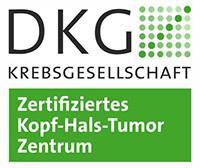Malignant tumors of the upper and lower jaw refer to cancer of the paranasal sinuses or oral cavity. Typically, jaw cancer develops from the epithelium of the mucous membrane. Malignant tumors rarely grow directly from bone tissue. These neoplasms have a better prognosis than long bone sarcomas.
The best treatment for any type of jaw cancer is surgical resection. Surgery for these tumors is complex and time-consuming. Doctors need to remove not only part of the jaw but also other facial tissue and lymph nodes in the neck and then restore damaged parts of the face, including jaws and teeth, using implants and autografts (fragments of the patient's own tissue). You can undergo your cancer treatment abroad and expect good oncological, functional, and aesthetic results.
Content
- What is upper jaw cancer?
- How is upper jaw cancer treated?
- What is lower jaw cancer?
- How is lower jaw cancer treated?
- Where can I undergo jaw cancer treatment abroad?
Jaw cancer can cause facial numbness, loosening of the teeth, mucus or bloody discharge and pain.
The examination may include radiography, computed tomography (CT, CT scan) and magnetic resonance imaging (MRI). Specialists use biopsy to determine the histological type of the tumor.
The main method of treatment is surgical removal of the tumor, supplemented by chemotherapy and radiotherapy.
Targeted radiotherapy can be an alternative to surgery in specialized clinics with modern equipment.
Rehabilitation includes prosthetics for the removed jawbone and teeth, physiotherapy and symptomatic treatment.
The average cost of surgical treatment for jaw cancer is €25,200. Full information about hospitals and treatment prices is available on the Booking Health website.
What is upper jaw cancer?
Upper jaw cancer develops from the mucous membrane of the maxillary sinus. A combined method is used for the treatment of the disease. It includes surgery, radiation therapy, chemotherapy, and immunotherapy.
The disease is severe and is usually detected at an advanced stage. The five-year survival rate of patients is 18-35%. But the chances of a cure or long-term control of the disease are much higher for those who receive high-quality medical care abroad.
The problem with upper jaw cancer is that the disease develops asymptomatically for a long time. The tumor gradually fills the sinus cavity without significantly disrupting its function. Symptoms appear only when the sinus is completely closed and the tumor spreads beyond its boundaries. It can spread both through natural communication with the nasal cavity and by destroying the walls of the maxillary sinus.
The tumor may grow in different directions: towards the nasal cavity or mouth or upward into the orbital and paraorbital tissues. The worst prognosis is when the tumor grows toward the brain.
How is upper jaw cancer treated?
Whenever possible, the tumor is removed surgically. This is the only way to cure cancer. Even if the tumor subsequently recurs, surgery ensures long-term survival for patients. Typically, patients receive adjuvant therapy after surgery.
Operations are performed for localized and locally advanced tumors. Surgery for jaw cancer treatment includes the following stages:
- Neck dissection is the removal of lymph nodes in the neck to which metastases have spread
- Upper jaw resection
- Resection of other involved tissues, for example, the frontal sinus, ethmoidal labyrinth, dura mater, orbit, soft tissue in the orbital area, exenteration of the eyeball, etc., depending on the path of implantation tumor spread
Doctors at the best Centers for Oral and Maxillofacial Surgery usually manage to remove the tumor completely. In the future, patients will require reconstructive plastic interventions to close soft tissue defects and restore upper jaw bone tissue and teeth. This is important not only for ensuring chewing and speech functions but also for restoring a normal appearance. If necessary, surgical plastic surgery may be supplemented with physiotherapy and other rehabilitation activities.
Doctors use implants and transplant the patient's own tissues to eliminate defects that occur after surgery. Dental prosthetics are then performed.
What is lower jaw cancer?
Lower jaw cancer is a tumor of the mouth. In 90% of cases, it is squamous cell carcinoma. Although these neoplasms can be detected during clinical examination, in two out of three cases, they are diagnosed at stage III or IV.
The five-year survival rate of patients with lower jaw cancer is as follows:
- In developed European countries – 55%
- In the USA – 63%
- In the countries of the former USSR – 24-37%
Survival rates are better for patients who are considered candidates for surgical treatment. In many of them, cancer can be completely cured.
How is lower jaw cancer treated?
Whenever possible, the tumor is removed using surgical treatment methods. Chemoradiation therapy is then carried out. For inoperable cancer, radiation therapy becomes the main cancer treatment method. It may be complemented by chemotherapy and, sometimes, targeted therapy or immunotherapy.
Foreign hospitals perform operations for locally advanced and localized tumors. The main stage is lower jaw resection, which in volume can be marginal, planar, or sagittal.
Almost any operation is complemented by lymph node dissection. Typically, lower jaw cancer metastasizes to the chin, submandibular lymph nodes, and lymph nodes of the upper third of the neck. It is necessary to remove lymph nodes if the tumor thickness is more than 4 mm, even if there are no signs of metastasis. As a rule, lymph node dissection is unilateral. If the tumor is located in the center of the lower jaw or extends beyond the midline, then removal of the lymph nodes on both sides is required.
Other tissues to which the tumor has spread can also be removed during the operation. A reconstructive stage is then carried out to restore the lower jaw and soft tissues. Doctors use implants and the patient's own tissue (bone revascularized autografts and musculocutaneous flaps) to restore appearance as well as speech, chewing, and swallowing functions.
Most patients require radiation therapy. Doctors can irradiate:
- The tumor itself if cancer is inoperable
- Tumor bed after surgical removal
- Regional lymph nodes or the area of the lymphatic collector after their removal
If you undergo your treatment abroad, radiation therapy will be safer. Hospitals in developed countries use advanced radiation methods, including IMRT, SBRT, and proton therapy.
Where can I undergo jaw cancer treatment abroad?
If you want to undergo your treatment abroad, you can choose a hospital and find out prices on the Booking Health website. The Departments of Oral and Maxillofacial Surgery in developed countries successfully perform even the most complex operations for upper and lower jaw cancers. In most cases, doctors manage to achieve complete tumor removal, which significantly reduces the risk of relapse.
Here are some of the benefits of treatment abroad:
- High-quality facial surgery with a high success rate
- Soft tissue reconstruction in the face and jaws to restore the appearance and function of the mouth
- Modern cancer treatment methods after surgery and for inoperable tumors (new options for radiation therapy, targeted therapy, and immunotherapy)
- Good survival rates
- Low risks of complications
The best Centers for Oral and Maxillofacial Surgery are presented on the Booking Health website. You can seek medical attention from any of them to undergo your treatment abroad. You can also sort hospitals by price, rating, reviews, and nearest available date to choose the appropriate option. When you make your treatment appointment through our service, the cost of treatment will be more profitable for you due to the absence of additional fees for foreign patients. The Booking Health specialists will help you select the most suitable hospital and organize your treatment abroad.
Authors:
The article was edited by medical experts, board certified doctors Dr. Nadezhda Ivanisova and Dr. Vadim Zhiliuk. For the treatment of the conditions referred to in the article, you must consult a doctor; the information in the article is not intended for self-medication!
Our editorial policy, which details our commitment to accuracy and transparency, is available here. Click this link to review our policies.
Sources:
Healthline
Verywell Health
HealthCentral




















